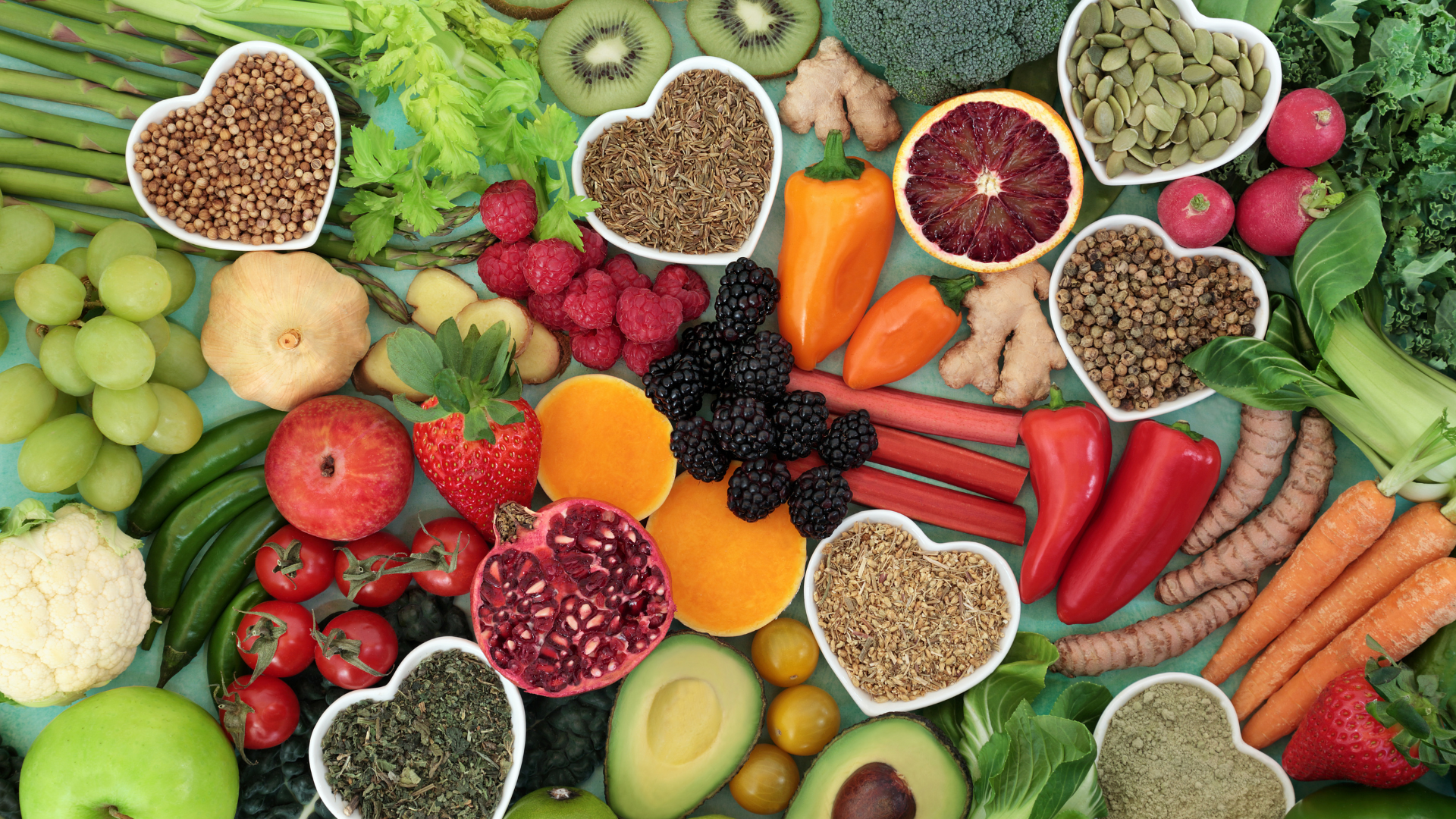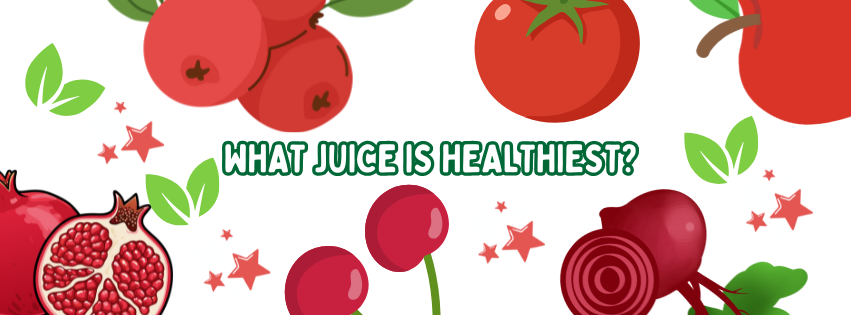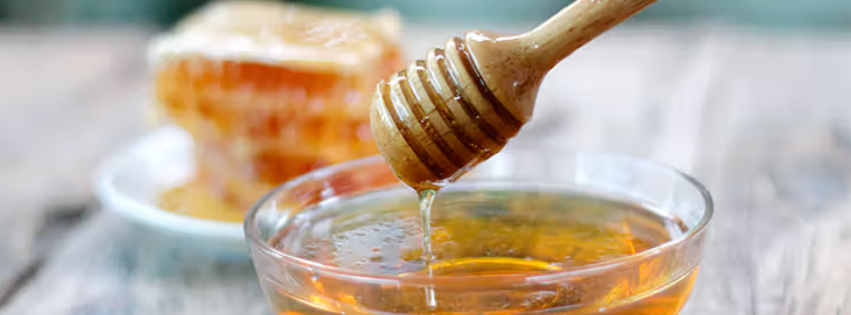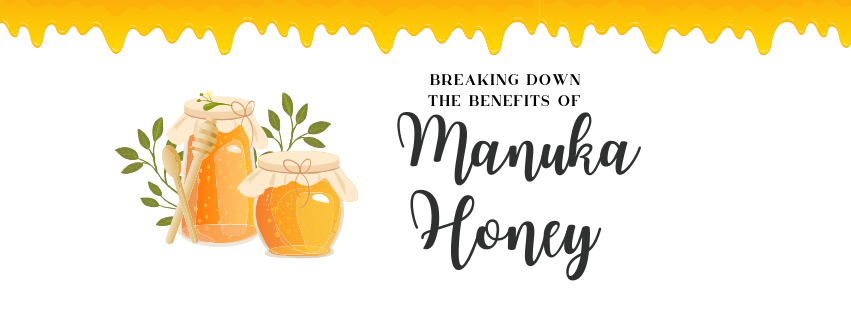The Truth About Seed Oils: Are They Good or Bad?
Are seed oils bad for you? You may have seen some Social Media influencers claiming that they are. Is there any truth to this? What are the benefits of not eating seed oils? Let's find out.
What Are Seed Oils?
Seed oils are vegetable oils that have been derived from the seed of a plant rather than the fruit. There are many methods used to produce seed oil. Sometimes they use high temperatures and pressure to extract the oil . Sometimes, they do cold-pressing, which involves crushing seeds to collect their oils.
The most popular seed oils are:
Canola
Corn
Sunflower
Pumpkin seed
Chia seed
Sesame
Peanut
These are called "The Hateful 8" by some. But is the problem seed oils themselves, or is it the way they’re being used? Let’s find out.
Are Seed Oils Bad for You?
Seed oils provide dietary fat, which is essential for vitamin absorption and creation/function of the body's cells.
According to Jason S. Ewoldt, M.S., RDN, a wellness dietitian at Mayo Clinic in Rochester, Minnesota: “All fats and oils are a mixture of saturated and unsaturated fatty acids.”
However, these two fats are not made equal.
Saturated fats, which mostly come from meat or dairy, can raise both good and bad cholesterol levels and are associated with an increased risk of heart disease. In general, it's a good idea to limit your saturated fat consumption. Many health experts recommend that no more than 5% to 6% of your daily calories should come from saturated fats.
Unsaturated fats are much better for you, there are two type of unsaturated fats: monounsaturated and polyunsaturated. Research suggests that monounsaturated fats may decrease bad cholesterol, raise good cholesterol and improve blood sugar regulation. Polyunsaturated fats are beneficial for heart health and also brain and cell function.
In short, many seed oils are high in unsaturated fats and low in saturated fat. If you replace saturated fats like butter with unsaturated seed oils, it can help you against type 2 diabetes and cardiovascular disease.
The reason so many people believe seed oils are bad is because many processed and packaged foods use seed oils.
“We do know that diets high in processed foods are linked to poorer health outcomes,” says Ewoldt. “The seed oil is not the likely driver for negative health effects. These processed foods also tend to have higher levels of refined carbohydrates, salt and sugar, which are all things we know in excess can impact health negatively.”
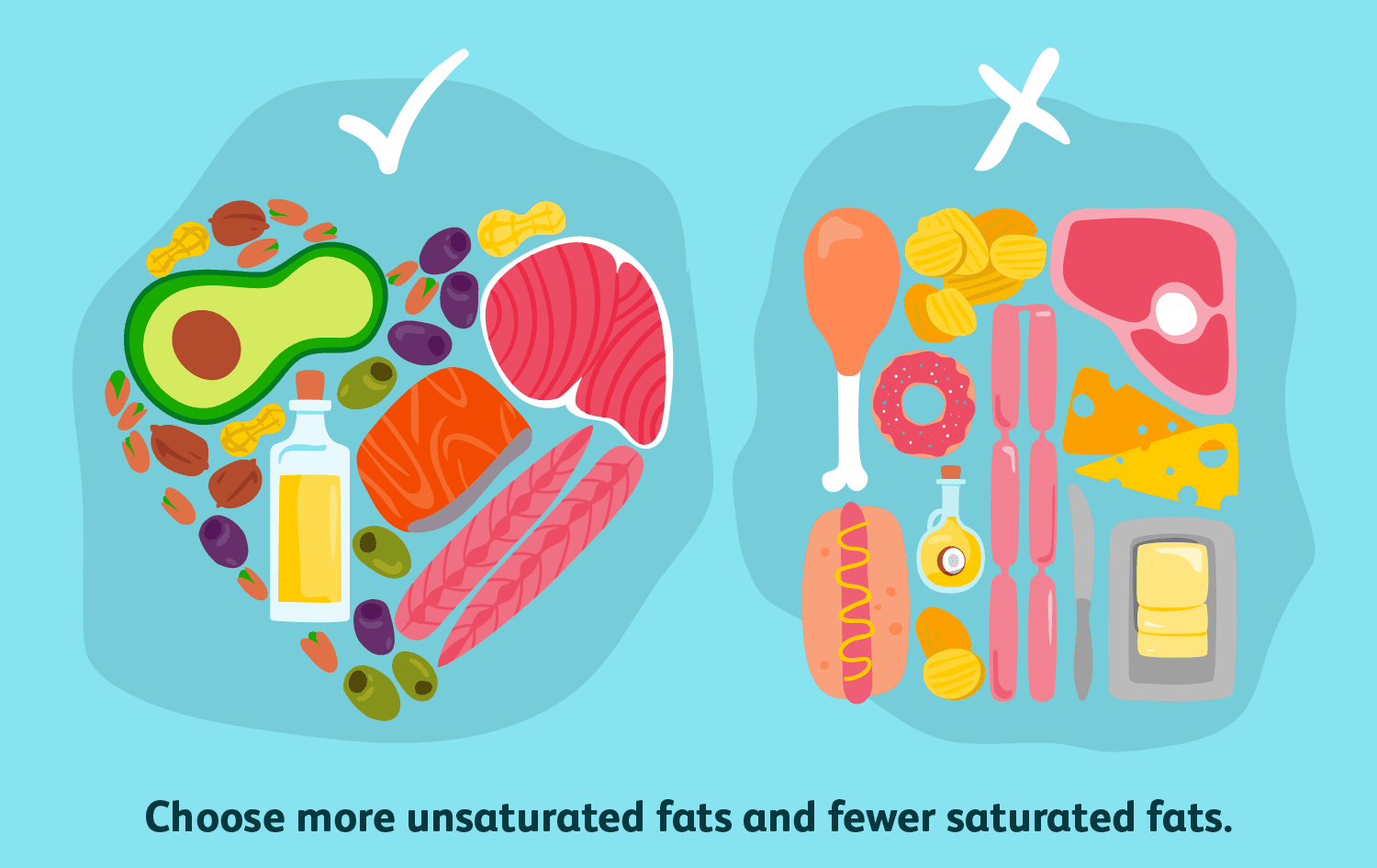
How to Use Seed Oils Effectively
The key to using seed oil is moderation. As long as you reduce your intake of processed foods, using seed oils for sautéing or baking shouldn't pose a risk to your health.
Registered dietitian Julia Zumpano, RD, LD, says: “It’s important to note that these oils shouldn’t be cooked at high temperatures or reused,” Zumpano cautions. “That really worsens their negative effects.”
“When people say they’re cutting seed oils from their diet, what they really end up doing is cutting out many processed foods,” she continues. “I think that’s why we often hear about seed oils being so bad for your health. But the reality is that it’s less about the seed oils themselves and more about the fact that they’re so often found in ultra-processed foods.”
Along with seed oils, you should be incorporating whole seeds into your diet as well. For instance, chia seeds have numerous health benefits, including being a rich source of fiber, omega-3 fatty acids, and antioxidants, which can contribute to improved heart health, digestion, and blood sugar regulation. We have many options for chia seeds available at each of our locations.
Things to be Cautious About
Despite their potential health benefits, some scientists are worried about how much of these oils people are consuming. The consumption of vegetable oils increased drastically in the last century as the technology to create them did not exist before that.
These concerns mostly apply to oils that contain a lot of omega-6 fats. Both omega-6 and omega-3 fatty acids are essential fatty acids, meaning that you need some of them in your diet because your body can’t produce them. However, in the past century, humans have come to consume much more omega-6 rather than omega-3, which can lead to chronic inflammation. Despite that, Scientists do not fully understand what effects omega-6 fats have on the body, and more human studies are needed.
It is more important to limit processed foods that are high in omega-6 fats like baked treats, chips, deep fried fast foods, or takeout meals, as these have a more direct and proven effect on health.
Current studies remain inconclusive as to how big of an impact avoiding vegetable oils when cooking at home actually has on health.
Oxidation
Polyunsaturated fat is more susceptible to oxidization, the fatty acids react with oxygen in the atmosphere and start deteriorating.
If you have a lot of polyunsaturated fatty acids in your body, your cell membranes are more sensitive to oxidation. For this reason, it may be best to eat polyunsaturated fats in moderation. Vary your diet by eating a mix of healthy saturated, monounsaturated, and polyunsaturated fats.
Options in Our Store
We have a couple options for Seed Oils in our store, many of which are unrefined. These oils will retain their natural colors, flavours and health benefits. For high temperature cooking or neutral flavors, refined oils is the way to go.
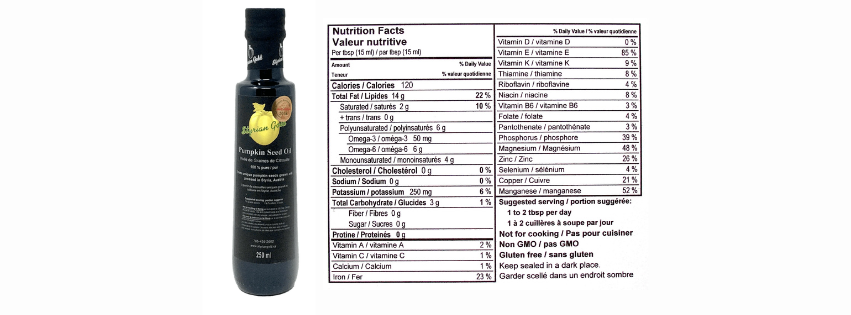
Pumpkin Seed Oil
Styrian Gold has an unrefined pumpkin seed oil, loaded with nutrients and compliments dishes well.
Smoke Point:
160° Celsius (not ideal for cooking or frying)
Best Used For:
Salads and vegetables as a dressing
Health Benefits: Rich in linoleic acid, which may be associated with improved heart health and blood sugar management
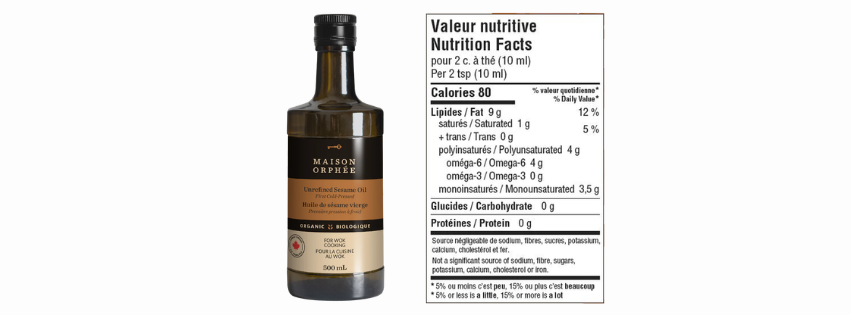
Sesame Oil
Maison Orphee creates many unrefined seed oils, including sesame oil, which can be used for a variety of purposes
Smoke Point: 175° - 210° Celsius
Best Used For:
Sautéing or add it to a sauce at the end of cooking time
Health Benefits:
Contains heart-healthy antioxidants which can help reduce cell damage caused by free radicals.
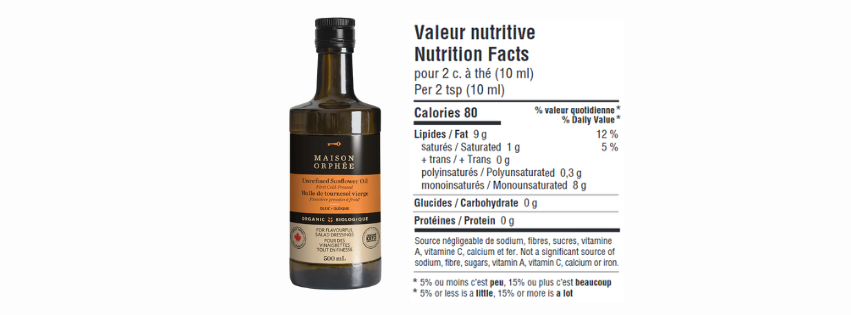
Sunflower Oil
Another Maison Orphee product, their sunflower oil has a rich aroma reminiscent of raw sunflower seeds and fresh greens.
Smoke Point: 232° Celsius
Best Used For:
Deep-Frying, Stir-Frying, Grilling and other high-heat purposes
Health Benefits:
Some studies suggest that consuming high oleic sunflower oil may help reduce your risk of heart disease.
Alternatives
If you're still not comfortable with using seed oils, there are many other options available for you to choose from.
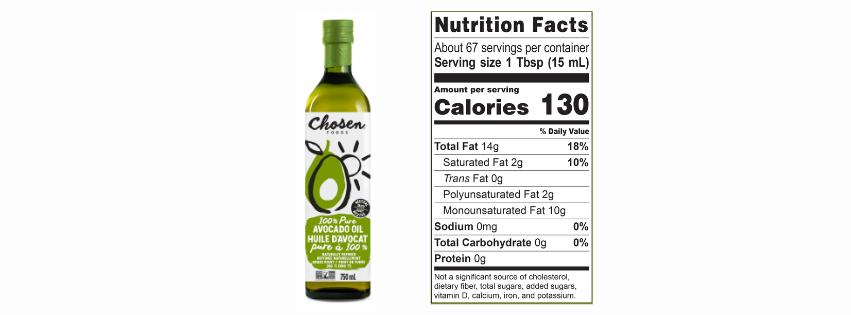
Avocado Oil is delicious, nutritious, and easy to use. It’s rich in oleic acid, polyunsaturated fats, carotenoids, and other antioxidant-rich nutrients that are linked to improved heart, skin, and eye health.
Chosen Foods has real avocado oil that's full of good fats from avocados.
Smoke Point:
249° -
271°
Celsius
Best Used For:
Searing, stir-frying, grilling, roasting, almost any kind of cooking
Health Benefits:
It can have anti-inflammatory, antioxidant and heart-health benefits
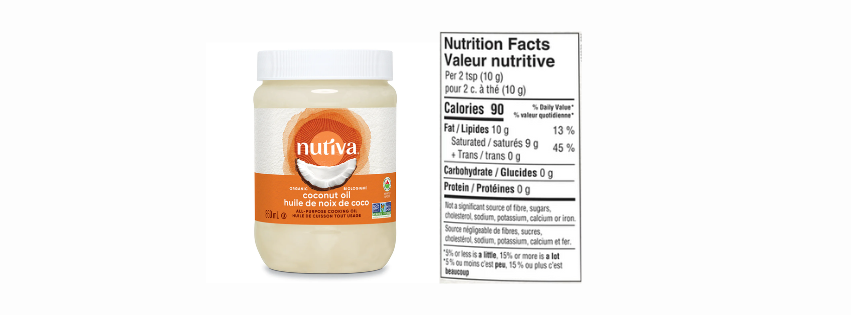
Coconut Oil
Nutiva Coconut Oil has a creamy taste of the tropics and is great for sautéing, baking, enhancing your favorite recipes, and body care.
Smoke Point: 175° - 196° Celsius
Best Used For:
Sautéing and Baking
Health Benefits:
It is high in MCT's, which provide a rapid energy source that your body can absorb and use faster than other types of saturated fat.
Conclusion
Most of the fear over seed oils stems from the fact they are used in highly processed and packaged foods. If you are simply using seed oils for cooking, there's not much to worry about. Be careful of how much saturated fat you are consuming and try to have more unsaturated fats in your diet. If you're still on the fence about seed oils, there are many different options available in our store for you to choose from like avocado or coconut oil.
Check out our post about the different types of cooking oils and when to use them in the kitchen
Happy cooking!
Sources:
https://www.healthline.com/nutrition/are-vegetable-and-seed-oils-bad
https://health.clevelandclinic.org/seed-oils-are-they-actually-toxic
